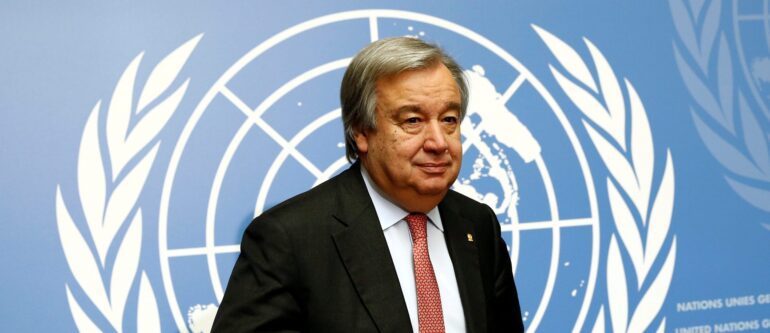TL;DR:
- UN Secretary-General Antonio Guterres endorses the creation of an international AI watchdog body inspired by the International Atomic Energy Agency (IAEA).
- The proposal comes in response to concerns about generative AI and its potential for deepfake images and misinformation.
- Guterres plans to establish a high-level AI advisory body to review AI governance arrangements and ensure alignment with human rights, the rule of law, and the common good.
- The envisioned AI agency would require the involvement of member states and could play a vital role in regulating AI deployment, safety compliance, and monitoring computational power usage.
- British Prime Minister Rishi Sunak also supports the idea and aims for the UK to become a global AI safety regulation hub.
Main AI News:
In a significant development, UN Secretary-General Antonio Guterres has expressed his support for a proposal put forward by leading artificial intelligence (AI) executives regarding the establishment of an international AI watchdog body. This body would function similarly to the International Atomic Energy Agency (IAEA), an organization renowned for its oversight of nuclear technologies.
Since the launch of ChatGPT, a generative AI technology capable of producing authoritative and compelling text, public interest in AI has surged. However, concerns have also arisen regarding its potential to generate deepfake images and propagate misinformation. Recognizing the growing apprehension surrounding generative AI, Guterres emphasized the need to take these warnings seriously.
To address these concerns, Guterres has announced plans to initiate the formation of a high-level AI advisory body by the end of this year. This body would be responsible for conducting regular assessments of AI governance arrangements and providing recommendations on how they can be aligned with human rights, the rule of law, and the common good.
In addition to these measures, Guterres expressed his openness to the idea of establishing an artificial intelligence agency, drawing inspiration from the successful model of the International Atomic Energy Agency. He emphasized that the creation of such an agency would require the participation of member states rather than the Secretariat of the United Nations.
The International Atomic Energy Agency, headquartered in Vienna and founded in 1957, focuses on promoting the safe, secure, and peaceful utilization of nuclear technologies while monitoring compliance with the Non-Proliferation Treaty (NPT). Currently, it boasts 176 member states.
OpenAI, the organization behind ChatGPT, recently proposed that an agency similar to the IAEA could play a crucial role in AI governance. Such an agency could impose restrictions on AI deployment, ensure adherence to safety standards, and monitor the utilization of computational power.
British Prime Minister Rishi Sunak has also expressed his support for this concept and expressed a desire for the United Kingdom to become a global hub for AI safety regulation. Later this year, Britain will host a summit focused on coordinating international efforts to address the risks associated with AI.
The convergence of support from influential figures like Guterres and Sunak underscores the growing recognition of the need for robust AI governance and regulation. As the world moves further into the era of advanced AI technologies, international collaboration and proactive measures are essential to harness AI’s potential while mitigating its potential risks.
Conclusion:
The endorsement by UN Secretary-General Antonio Guterres and the proposal for an international AI watchdog body reflect the growing concerns about the implications of generative AI technology. This development indicates an increasing recognition of the need for robust AI governance and regulation. The establishment of an AI advisory body and a potential AI agency would provide a framework for addressing the risks associated with AI while harnessing its potential. This signals a significant opportunity for the market, as it highlights the growing demand for AI safety regulation and the emergence of new avenues for collaboration and innovation in the AI sector.

